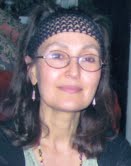
Questions
Selma Gokcen
“I would like to beg you, dear Sir, as well as I can, to have patience with everything unresolved in your heart and to try to love the questions themselves as if they were locked rooms or books written in a very foreign language. Don’t search for the answers, which could not be given to you now, because you would not be able to live them. And the point is to live everything. Live the questions now. Perhaps then, someday far in the future, you will gradually, without even noticing it, live your way into the answer.”
—Rainer Maria Rilke, from Letters to a Young Poet (1903)
Einstein began his career working on his theory of relativity and then embarked upon a thirty-year voyage in search of the so-called “unified field theory,” also referred to as the Theory of Everything (ToE). He was ultimately unsuccessful and died leaving this grand question open to succeeding generations of physicists to explore.
We practitioners of the Alexander Technique face our own unanswerable questions. We search for a deeper understanding, we practise the work daily to refine our skills, but I know from my own experience that I make many assumptions about the Technique that have no scientific rationale as of yet. It doesn’t stop me from refining my skills, as the practical benefits are overwhelmingly obvious. But how the Alexander Technique works exactly I don’t know, we don’t know. I continue to explore this important question, as do many of my colleagues.
Living in question is the most creative and stimulating state of being. Doors are always opening in the mind, one is motivated to explore, to observe and to take note. Patrick Macdonald, one of the first generation teachers of the Alexander Technique whom I most admire (and is, sadly, no longer alive) used to say: “The Alexander Technique is, in one word, about attention.” So what is attention, where does it emanate from, is it a function of the mind alone or of the body too? Is it a manifestation of the senses? Is there such a thing as full attention, partial attention, strong, weak attention? Is it within us, beyond us but passing through us?
I am a novice in this field, just beginning to explore what it might mean to pay attention. Thanks to my developing work in the Technique, I had the extraordinary experience of coming into a completely different field of attention as I released layers of unnecessary tension. My attention expanded to include my surroundings even as I focused on playing the cello. It used to be that either I could concentrate on one or the other, not both. I am beginning to understand that too much tension interferes with the attention. Excessive tension makes it impossible to maintain a flexible and free state of alertness; it diminishes the quality of impressions, sensations and most of all, our ability to listen intently to what is around us. Maybe it is a question of available energy. Too much effort wastes energy. Attention is a manifestation of the energy passing through the body, therefore unnecessary effort interferes with and dissipates attention.
Bringing this question of attention to music, what could be more important to a musician than the ability to listen sensitively and accurately? It’s the basis of all music-making, and there the Alexander Technique can make an important contribution to awakening us to our surroundings, by releasing excessive tension and at the same time freeing our attention.
Subjects: Playing Healthy
Tags: Alexander Technique, attention, available energy, creative, daily practice, deeper understand, effort, Einstein, flexible, free state of alertness, full attention, Gokcen, impressions, listening intently, living in question, Mind, motivation, partial attention, Patrick Macdonald, paying attention, refined skills, refining skills, releasing excessive tension, Selma, sensations, Theory of Everything, unanswerable questions, wasted energy
